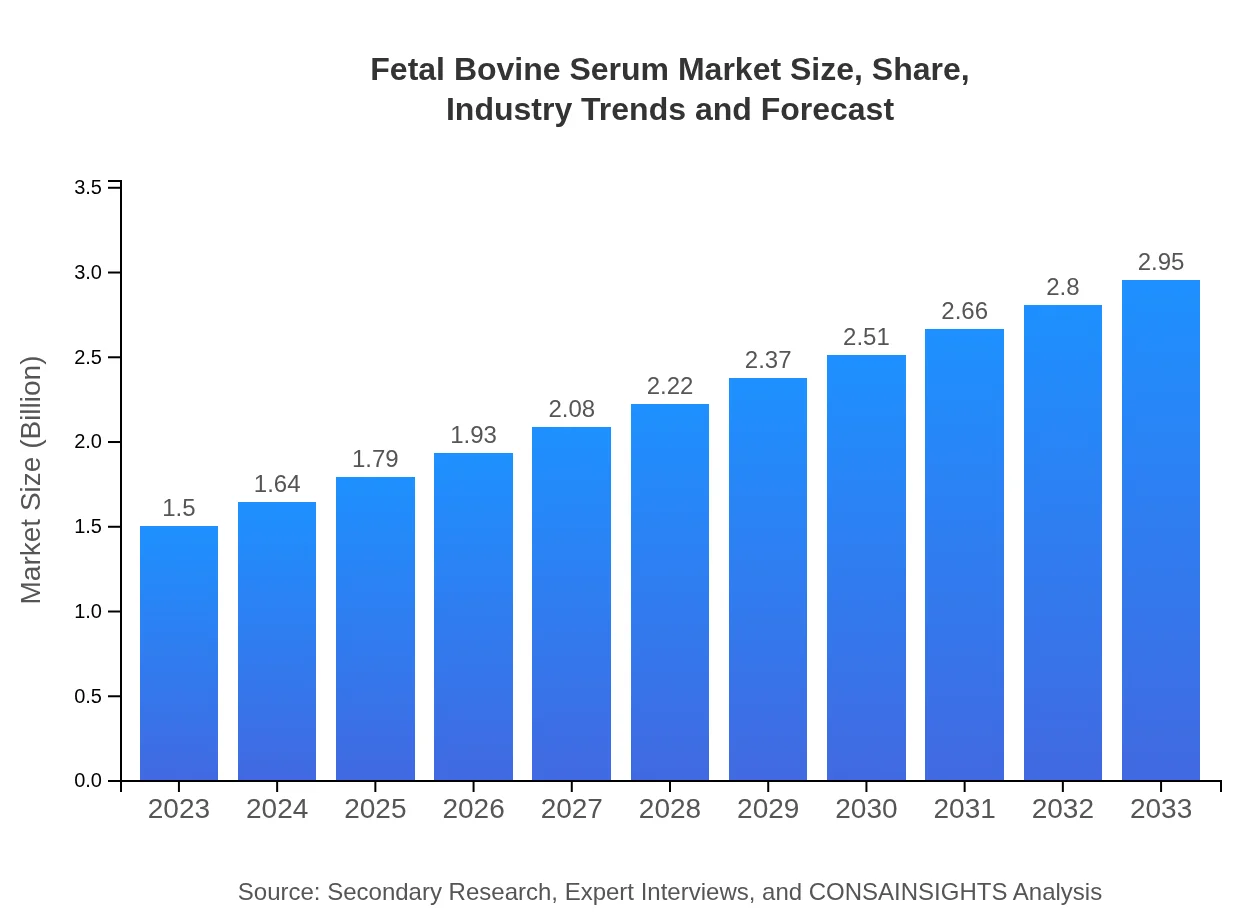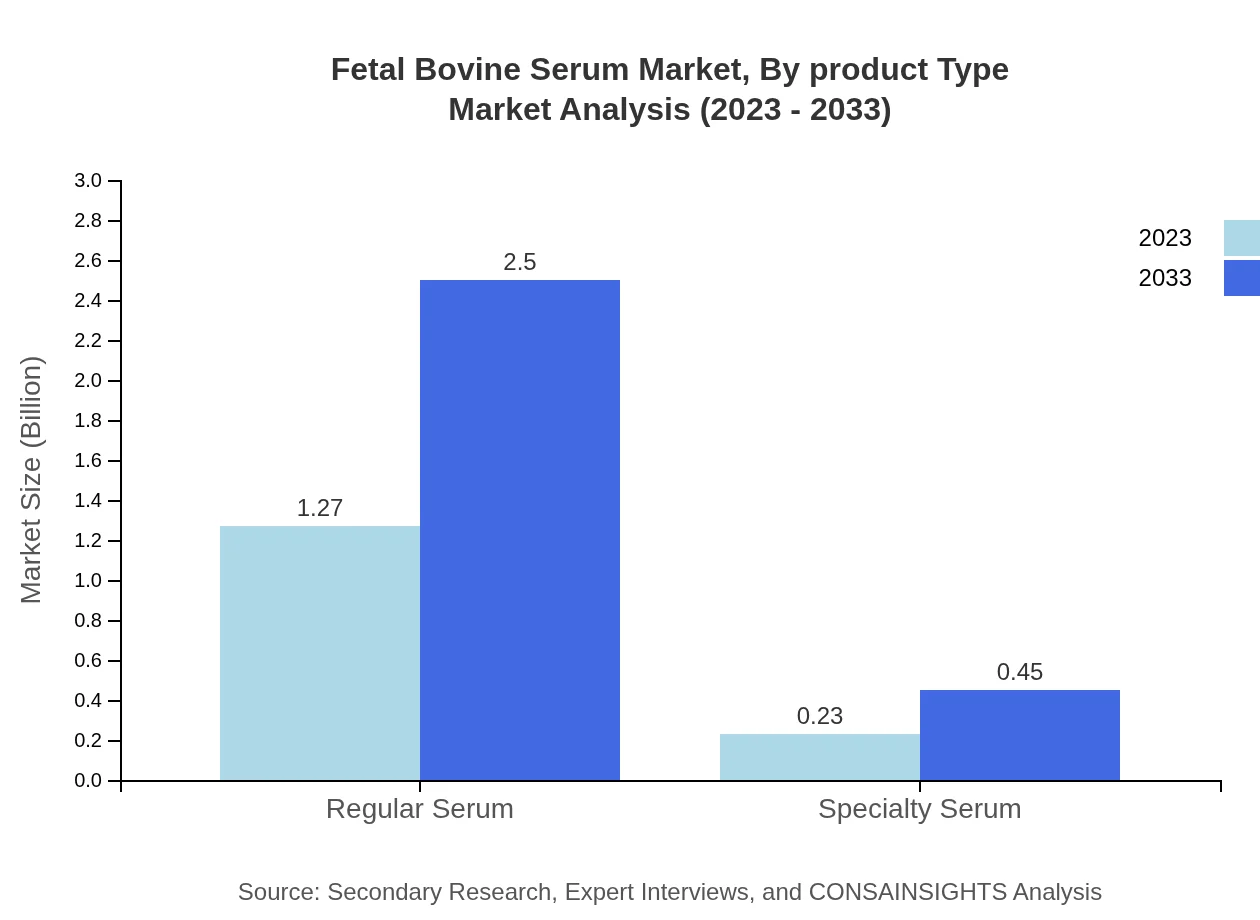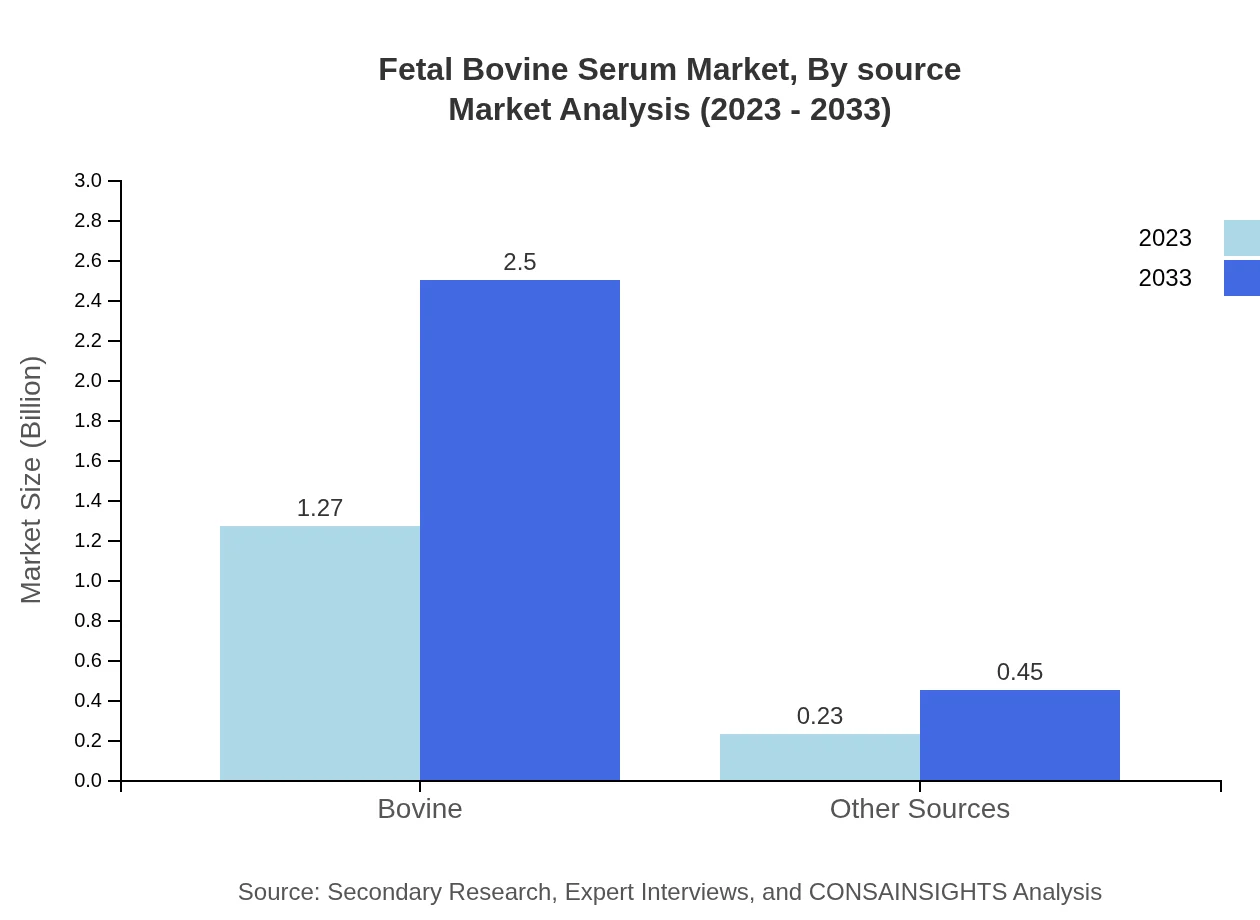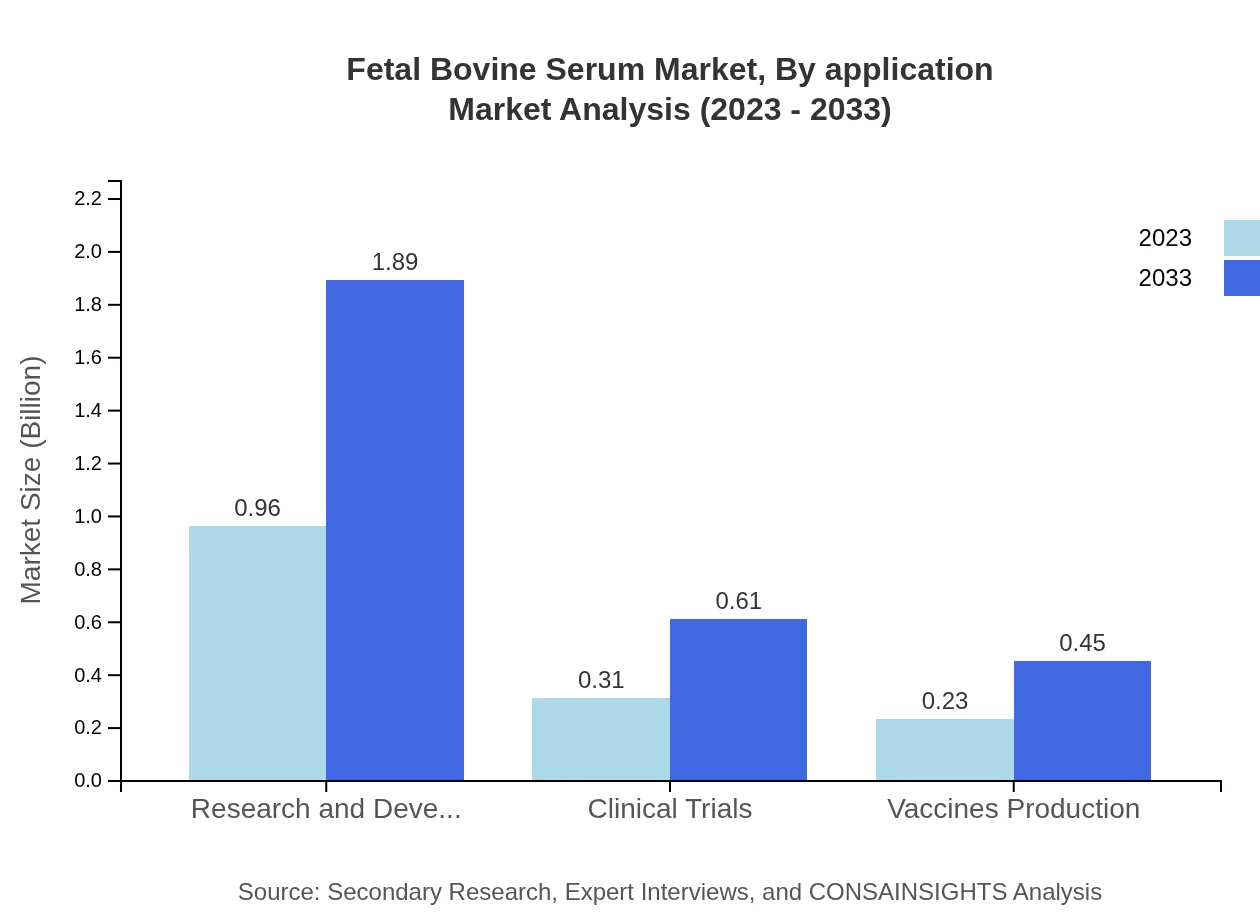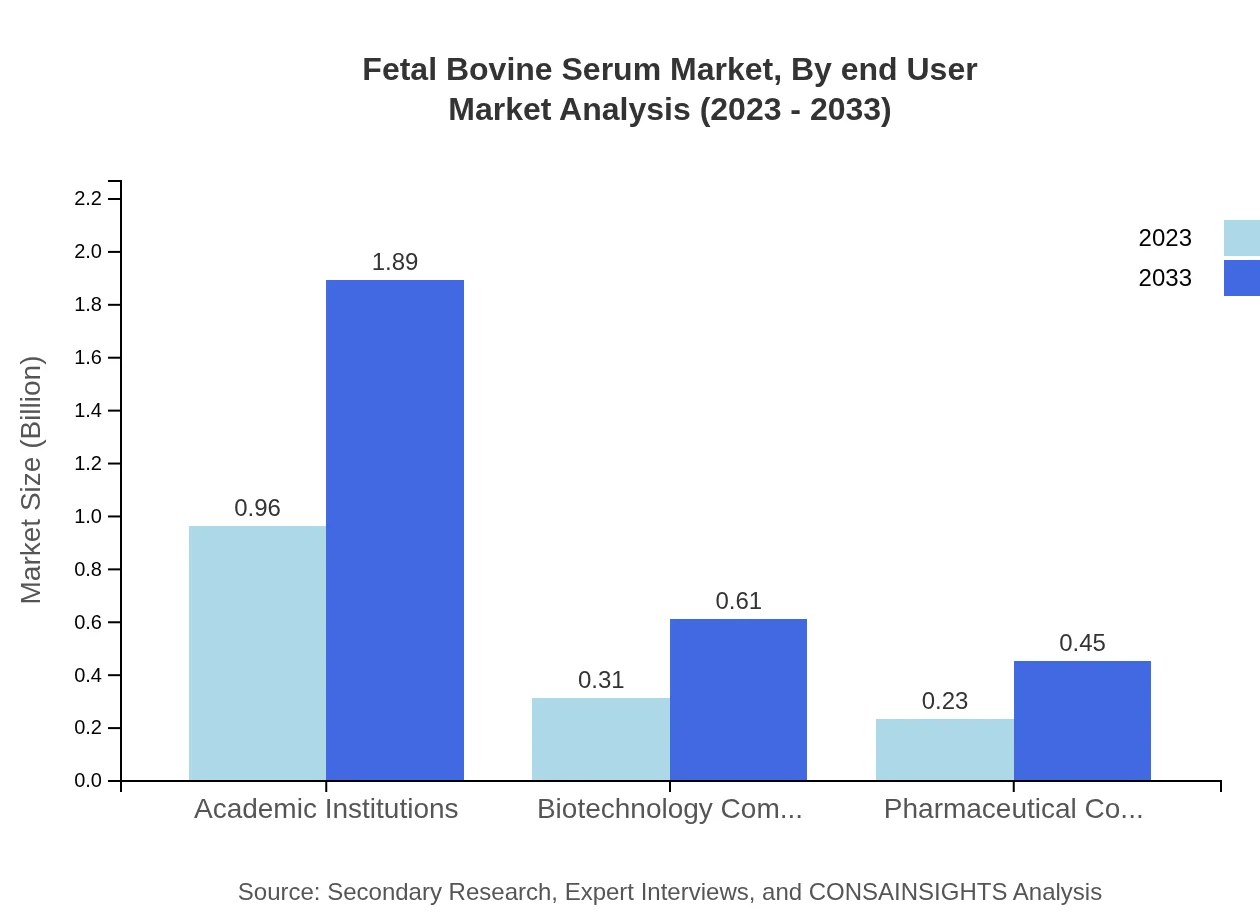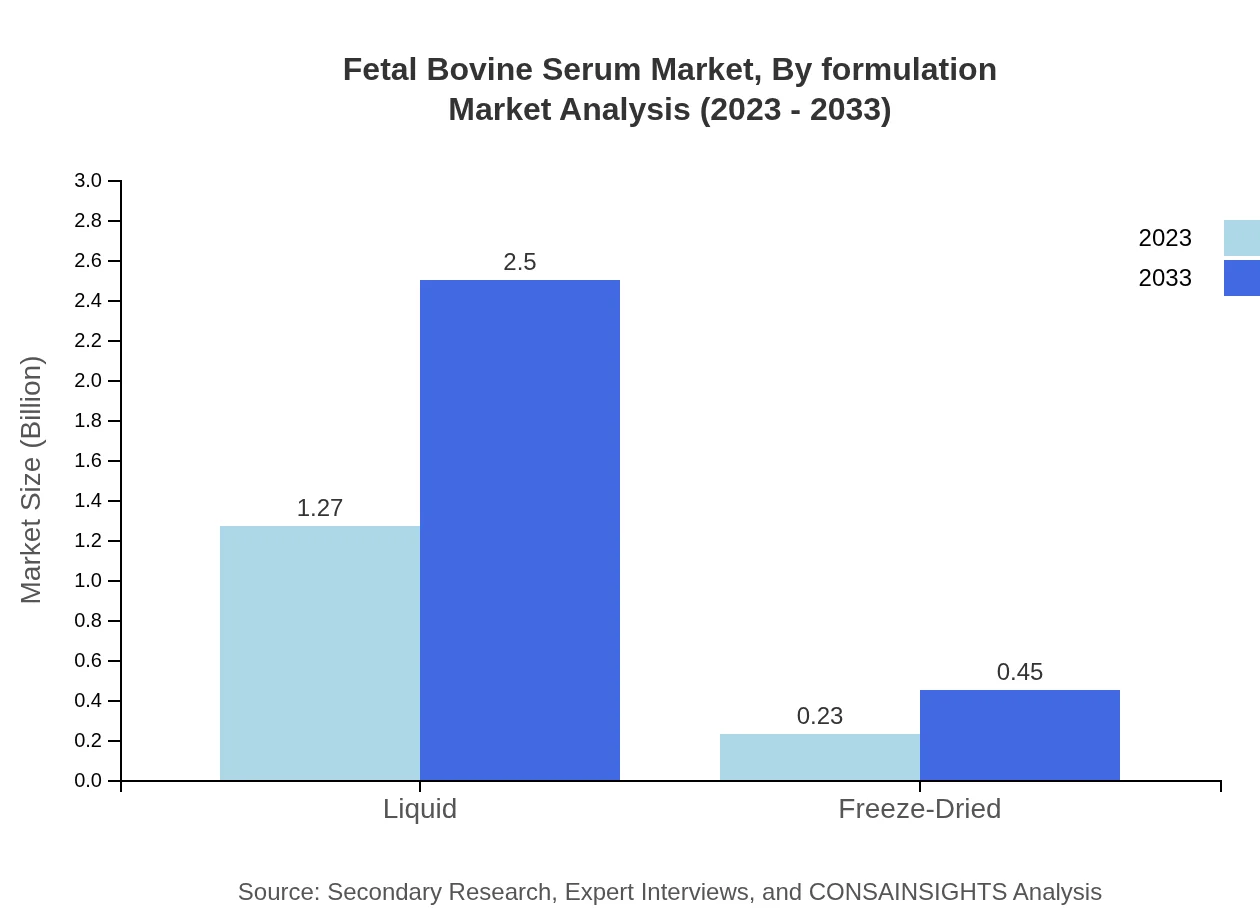Fetal Bovine Serum Market Report
Published Date: 31 January 2026 | Report Code: fetal-bovine-serum
Fetal Bovine Serum Market Size, Share, Industry Trends and Forecast to 2033
This report provides a comprehensive analysis of the Fetal Bovine Serum market, exploring key trends, market size, growth forecasts, industry insights, and regional performance from 2023 to 2033.
| Metric | Value |
|---|---|
| Study Period | 2023 - 2033 |
| 2023 Market Size | $1.50 Billion |
| CAGR (2023-2033) | 6.8% |
| 2033 Market Size | $2.95 Billion |
| Top Companies | Thermo Fisher Scientific Inc., Lonza Group AG, Serum Institute of India Pvt Ltd., Hyclone Laboratories |
| Last Modified Date | 31 January 2026 |
Fetal Bovine Serum Market Overview
Customize Fetal Bovine Serum Market Report market research report
- ✔ Get in-depth analysis of Fetal Bovine Serum market size, growth, and forecasts.
- ✔ Understand Fetal Bovine Serum's regional dynamics and industry-specific trends.
- ✔ Identify potential applications, end-user demand, and growth segments in Fetal Bovine Serum
What is the Market Size & CAGR of Fetal Bovine Serum market in 2023?
Fetal Bovine Serum Industry Analysis
Fetal Bovine Serum Market Segmentation and Scope
Tell us your focus area and get a customized research report.
Fetal Bovine Serum Market Analysis Report by Region
Europe Fetal Bovine Serum Market Report:
The Fetal Bovine Serum market in Europe is projected to grow from $0.44 billion in 2023 to $0.86 billion by 2033. The market is mainly driven by advancements in life sciences and a focus on developing innovative therapies and treatments in pharmaceutical applications.Asia Pacific Fetal Bovine Serum Market Report:
In the Asia Pacific region, the Fetal Bovine Serum market was valued at approximately $0.28 billion in 2023 and is expected to reach $0.55 billion by 2033. This growth is primarily driven by increasing healthcare spending, rising research activities, and an expanding biotechnology sector in countries like China and India.North America Fetal Bovine Serum Market Report:
North America is the leading region, with a market size of approximately $0.56 billion in 2023 and projected to grow to $1.10 billion by 2033. The significant presence of major pharmaceutical and biotechnology companies and robust funding for research and development fuels this demand.South America Fetal Bovine Serum Market Report:
The South American market size for Fetal Bovine Serum was estimated at $0.03 billion in 2023, anticipated to increase to $0.05 billion by 2033. The enhancement of biotechnological capabilities and increased collaboration among research institutions contribute to this growth.Middle East & Africa Fetal Bovine Serum Market Report:
In the Middle East and Africa, the market for Fetal Bovine Serum is estimated at $0.20 billion in 2023, with a growth expectation to $0.39 billion by 2033. This growth is encouraged by increased investments in healthcare and biotechnology sectors in the region.Tell us your focus area and get a customized research report.
Fetal Bovine Serum Market Analysis By Product Type
The market for Fetal Bovine Serum, segmented by product type, shows significant differentiation in consumer needs. Liquid FBS, which holds substantial market share, accounted for $1.27 billion in 2023 and is projected to reach $2.50 billion by 2033, representing a strong preference for this format in laboratories. Conversely, Freeze-Dried serum presents an emerging opportunity, although comparatively smaller, showing growth from $0.23 billion to $0.45 billion in the same period.
Fetal Bovine Serum Market Analysis By Source
The Fetal Bovine Serum market segment, based on source, primarily consists of Bovine, which significantly leads the market. In 2023, Bovine sourced serum represented $1.27 billion, with expectations to witness an increase to $2.50 billion by 2033. Other sources also show potential, albeit at a smaller scale, moving from $0.23 billion to $0.45 billion in the same timeframe.
Fetal Bovine Serum Market Analysis By Application
Applications of Fetal Bovine Serum are diverse, reflecting its critical role in the biotechnology landscape. Academic institutions lead the demand, comprising $0.96 billion in 2023 and projected to grow to $1.89 billion by 2033. Biotechnology companies represent $0.31 billion in 2023, looking to expand to $0.61 billion in a similar manner. Additionally, applications in pharmaceutical companies and research & development facilities are potent drivers of growth.
Fetal Bovine Serum Market Analysis By End User
Key end-users of Fetal Bovine Serum include hospitals, clinics, and research laboratories. The clinical trials segment accounts for a noteworthy share, contributing $0.31 billion in 2023 and growing to $0.61 billion by 2033. Furthermore, research and development applications also provide significant market share, emphasizing the essential role of Fetal Bovine Serum in innovative health solutions.
Fetal Bovine Serum Market Analysis By Formulation
The formulation segment of the Fetal Bovine Serum market identifies Regular Serum as the predominant type, maintaining a stable market of $1.27 billion in 2023, increasing to $2.50 billion by 2033. Specialty serum formulations remain relevant, moving from $0.23 billion to $0.45 billion, showcasing the need for tailored solutions in specific applications.
Fetal Bovine Serum Market Trends and Future Forecast
Tell us your focus area and get a customized research report.
Global Market Leaders and Top Companies in Fetal Bovine Serum Industry
Thermo Fisher Scientific Inc.:
A leading provider of laboratory products, including high-quality fetal bovine serum, known for its innovation in scientific research and enhancing cell culture techniques.Lonza Group AG:
A global leader in biopharmaceutical manufacturing, providing Fetal Bovine Serum products designed for high efficiency in biological research.Serum Institute of India Pvt Ltd.:
One of the largest biopharmaceutical companies in India, offering Fetal Bovine Serum that adheres to international quality standards.Hyclone Laboratories:
A pioneer in the development of cell culture media, including Fetal Bovine Serum, with a focus on improving productivity in laboratory research.We're grateful to work with incredible clients.









FAQs
What is the market size of fetal Bovine Serum?
The fetal bovine serum market is estimated to reach $1.5 billion by 2033, growing at a CAGR of 6.8% from its current market size. This remarkable growth indicates a robust demand across various sectors.
What are the key market players or companies in the fetal Bovine Serum industry?
Key players include major pharmaceutical and biotechnology companies focused on research and development. Notable companies may include well-established suppliers of fetal bovine serum providing critical resources for clinical trials and vaccine production.
What are the primary factors driving the growth in the fetal Bovine Serum industry?
The growth is primarily driven by increasing demand in academic institutions and research organizations, advancements in biotechnology, and a rising focus on vaccine production and clinical trials, contributing to rising investments in health research.
Which region is the fastest Growing in the fetal Bovine Serum?
North America is the fastest-growing region projected to reach $1.10 billion by 2033, up from $0.56 billion in 2023. It is followed by Europe, with significant gains anticipated in the Asia Pacific region as well.
Does ConsaInsights provide customized market report data for the fetal Bovine Serum industry?
Yes, ConsaInsights offers tailored market reports, allowing clients to receive customized data and insights that cater specifically to their needs and focus areas within the fetal bovine serum industry.
What deliverables can I expect from this fetal Bovine Serum market research project?
Deliverables typically include comprehensive analytics reports, market forecasts, regional insights, segment data, and specific competitive landscape assessments to provide in-depth understanding for stakeholders.
What are the market trends of fetal Bovine Serum?
Current trends include a shift towards increased utilization in research and clinical applications, a rise in demand for both liquid and freeze-dried forms, as well as growing investments in biotechnology advancements.

